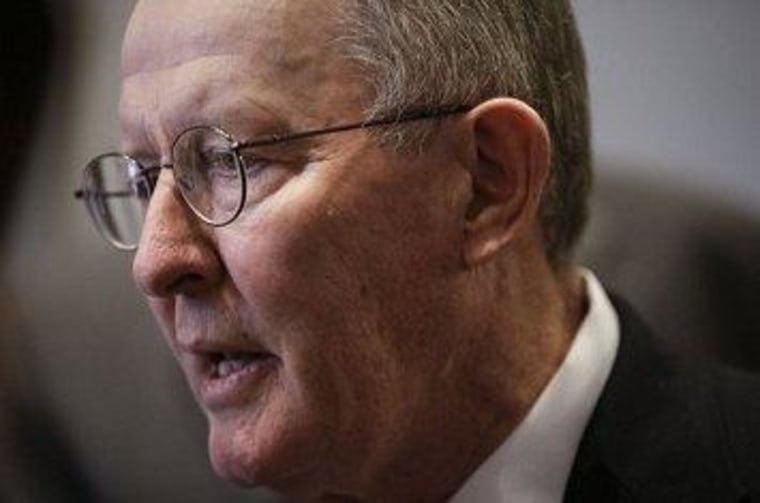In February, President Obama pushed for an increase in the minimum wage, and soon after, a national poll found that by a nearly three-to-one margin, Americans agreed with him.
But among many congressional Republicans, there isn't just opposition to increasing the minimum wage, but also to the existence of a minimum wage.
Sen. Lamar Alexander (R-Tenn.), the ranking Republican on the Senate's labor committee, said in a hearing Tuesday that he would prefer to see the minimum wage abolished.Alexander's declaration came amid a back-and-forth between a witness from the conservative Heritage Foundation and Sens. Tom Harkin (D-Iowa) and Bernie Sanders (I-Vt.). The trio had been debating what kind of impact a higher minimum wage would have on a theoretical worker, and it seemed Sanders wanted to know whether the witness opposed raising the minimum wage or having a minimum wage at all.
When Sanders noted that there are "some conservatives who do not believe in the concept of the minimum wage," Alexander jumped in to endorse that position. "So you do not believe in the concept of the minimum wage?" the Vermonter asked? "That's correct," Alexander responded. When Sanders followed up, asking if the Tennessee Republican would "abolish" the minimum wage, Alexander replied, "Correct."
The GOP lawmaker said he preferred a "negative income tax" system and an expansion of the Earned Income Tax Credit, though Alexander added he opposes these ideas, too -- he just sees them as less offensive than a minimum wage.
Such talk is increasingly common in Republican circles. For many years, the debate was partisan but limited -- Democrats pushed for minimum-wage increases; Republicans pushed for leaving the wage where it is, even as it lost its purchasing power. But as the GOP has become more radical, it's easier to find prominent Republicans rejecting the very idea of a minimum wage altogether.
Consider just the last few years.
In 2010 Senate races, for example, Republican nominees in Connecticut, Alaska, West Virginia, Kentucky, and the state of Washington all argued that they either oppose the minimum wage, consider its existence unconstitutional, or both. In March 2012, there was a debate among Republican Senate candidates in Missouri, most of whom argued for the elimination of the minimum wage. And a year later, Sen. Marco Rubio (R-Fla.), who has obvious national ambitions, said he too is against the existence of a minimum wage.
Before the party's radicalization, Republican leaders used to champion a "living wage," and as recently as the 1970s, GOP support for wage controls, at least on a temporary basis, was not uncommon.
Today's GOP would have been unrecognizable to these Republicans of decades past.
